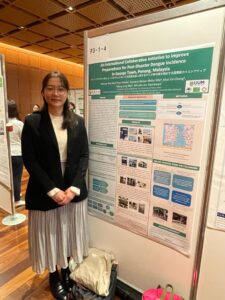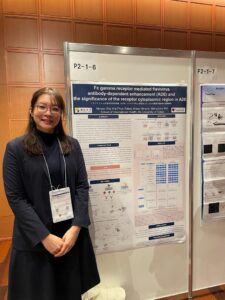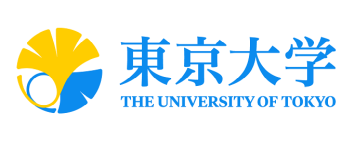PhD candidate, Ms. Nensar Wai Wai Phyo Rakwi presented on the role of Fcgamma receptor cytoplasmic region during secondary flavivirus infection and, on the collaborative initiative with Malaysia in preparedness for post-disaster dengue.
Abstract:
Fc gamma receptor mediated flavivirus antibody-dependent enhancement (ADE) and the significance of the receptor cytoplasmic region in ADE
The internalization of virus-immune complex by Fc receptor-bearing cells plays a pivotal role in antibody-dependent enhancement (ADE), thus amplifying viral replication and potentially worsening the severity of infection. This phenomenon has been observed in flavivirus infections, including Dengue virus (DENV), Zika virus (ZIKV) and Japanese Encephalitis virus (JEV) during secondary infection with a heterologous serotype or different flavivirus. The interaction between IgG Fc receptors and virus-bound antibodies in the development of flavivirus infections serves as a significant mechanism in which ADE operates. To gain a deeper understanding of the mechanism of antibody-dependent mechanism among flaviviruses in vitro, we developed two stable cell lines which express the wild-type (WT) FcγRIIA and, a mutant FcγRIIA that do not possess the cytoplasmic region (CT). By using conventional plaque assay, we determined the ADE activity of these cell lines, using monoclonal antibody and human serum. Initial results demonstrated differential ADE patterns across flaviviruses, indicating diversity in the ADE levels between flaviviruses in the presence of non-neutralizing antibodies.
An International Collaborative Initiative to Improve Preparedness for Post-Disaster Dengue Incidence in George Town, Penang, Malaysia
Mosquito-borne infectious diseases such as Dengue Virus infection could follow water-related disasters, especially in tropical areas. Dengue, a neglected tropical disease, could pose a significant public health challenge to disaster-stricken, already vulnerable locations. Both incidence of infectious diseases and occurrences of natural disasters often cause devastating impacts on tourist destinations. However, warning of incidence of dengue has been rarely seen when water-related disasters occur in Malaysia. To address the gap of risk communication in public health and disaster risk reduction, academic researchers comprising experts in virology, tropical medicine, engineering, disaster management, and marketing from three universities in Japan and Malaysia launched an international collaborative study to improve preparedness and resilience of the UNESCO World Heritage Site of George Town, Penang, Malaysia. The collaboration has also engaged graduate students to promote international education and academic exchange, which could hopefully contribute to developing young researchers with interdisciplinary perspectives. We report initial findings obtained from the fieldwork we conducted in George Town in September 2022, the progress in involving multiple stakeholders in the heritage site, and the academic activities in involving graduate students. So far, we identified lack of visual data in the heritage site to caution against mosquito breeding as well as vulnerability towards flooding. Further studies are required to fill the gap in integrating risk communication, including mosquito surveillance and inspection of drainage structures in the heritage site as well as information gathering from public agencies in Putrajaya, Malaysia.
Collaborators:
● School of Technology Management & Logistics, Universiti Utara Malaysia
● Center for Southeast Asian Studies, Kyoto University, Japan






